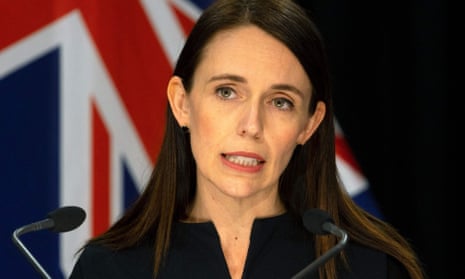Jacinda Ardern has said she must be able to raise concerns with Beijing without prompting “retaliatory acts”, on the eve of her planned meeting with the Chinese president, Xi Jinping.
The pair’s first in-person bilateral meeting since 2019 is due to take place on Friday evening on the sidelines of the Apec forum. It comes during a strained time in New Zealand-China relations, where ideological differences – and New Zealand’s economic reliance on China as an export market – have continued to grow.
Speaking in Bangkok to New Zealand news outlet Stuff, New Zealand’s prime minister said that she would be discussing the countries’ close economic relationship and opportunities to cooperate, as well as areas of difference. “I will make sure that I raise both in the national interest,” she said.
“Let’s not define the relationship on the parts where we part ways, but we do have to create an environment where we can raise those [concerns] because that’s part of who we are. We will always raise the areas that we have concerns about,” she said.
“We need to make sure we have an environment where we can do that without us seeing retaliatory acts, because in my mind that doesn’t further the relationship.”
China is by far New Zealand’s largest export market, accounting for a third of its exports. At the close of 2021, the Ministry of Foreign Affairs and Trade said that two-way goods and services trade totalled NZ$37.7bn, up 20% from the year before. The Chinese market made up 23% of New Zealand’s total trade and 32% of New Zealand’s goods exports.
That dependency has presented New Zealand with a difficult balancing act between raising concerns and preserving economic ties. New Zealand’s government faces stark foreign and domestic policy differences with China – most notably Beijing’s tensions with Taiwan, the oppression of Uyghur Muslims in Xinjiang, suppression of democracy in Hong Kong, and growing geopolitical competition in the Pacific, where China has either established or attempted a series of security treaties with Pacific nations New Zealand considers close partners.
The government has been cautious but consistent on raising those issues – having watched in recent years as Australia experienced the trade fallout of hard-line rhetoric on China during the pandemic.
Ardern has said discussions in the meeting will closely mirror New Zealand’s public statements on China. “I will be totally consistent … I’ve said many times that what we share privately we share publicly,” she said.
The prime minister has said she will not raise China’s zero-Covid strategy, despite its economic impact. It’s not clear whether the two will discuss Russia’s invasion of Ukraine, which was squarely on the agenda at the G20 summit attended by Xi.
Dr Jason Young, director of the New Zealand Contemporary China Research Centre, said he “would expect New Zealand to use the opportunity to further discussions around trade and seeking greater cooperation on climate change” as well as raising “important challenges in the relationship”, including human rights concerns over Xinjiang and Hong Kong, geopolitical tensions in the Taiwan Strait, and New Zealand’s concerns about growing strategic competition in the Pacific.
“I would hope to see the prime minister … encouraging China to use its relationship with Russia to seek an end to the destabilising war in Ukraine,” he said.
Ardern and Xi’s meeting comes after a long period with little in-person contact between the two countries. New Zealand emerged this year from a long period of lockdowns and travel restrictions, while China has continued to enforce both in pursuit of its zero-Covid policy. From that perspective, some analysts say the fact of the meeting is as important as any specific items on the agenda.
“The key outcome for the meeting is that it occurs,” said Young. “New Zealand’s relationship with China is stable but strained – there are areas of cooperation that are positive for both countries and a number of issues and differences where concerns have not been resolved,” he said. The meeting would be “an opportunity to reiterate the importance of relations and for both sides to exchange views.”
The pandemic period had been “very light on political interaction and very light on people-to-people exchanges,” said John McKinnon, chair of the New Zealand-China Council and former New Zealand ambassador to China, speaking at the NZ Institute of International Affairs on Monday.
“The sooner we can move on from that, the better it will be for the overall health of the relationship and our ability to understand what is happening in China. We don’t always agree with it, but we will have a better understanding.”
